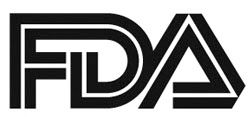Rolling NDA Submitted for Pralsetinib in RET+ NSCLC Based on Topline ARROW Data
A rolling New Drug Application has been submitted for pralsetinib as treatment of patients with RET fusion–positive non–small cell lung cancer, according to a press release from Blueprint Medicines Corporation.

A rolling New Drug Application (NDA) has been submitted for pralsetinib (BLU-667) as treatment of patients with RET fusion–positive non–small cell lung cancer (NSCLC), according to a press release from Blueprint Medicines Corporation.
The NDA is based on data from the phase I/II ARROW (NCT03037385) clinical trial, which demonstrated positive topline findings for both patients withRETfusion-positive NSCLC as well as RET-altered thyroid cancers. The company requested Priority Review of the NDA to expedite the review process.
"I am particularly encouraged that we have advanced pralsetinib toward registration across multiple tumor types," Andy Boral, MD, PhD, chief medical officer, Blueprint Medicines, said in a statement. "The top-line data announced today demonstrate the potential of pralsetinib to be a best-in-class therapy for patients with RET-altered thyroid cancers, with deep and durable responses in both the first-line and relapsed settings."
The highly selective RET inhibitor pralsetinib achieved an overall response rate (ORR) of 61% (95% CI, 50-72) in patients with NSCLC. Tumor shrinkage was observed in 95% of patients, including 14% who achieved complete regression of target tumors. As of the November 18, 2019 cutoff data, the median duration of response (DOR) had not been reached (95% CI, 11.3 months-not estimable [NE]).2
Topline data were reported for patients with RET-mutant medullary thyroid cancer (MTC), both untreated patients and those who had previously received cabozantinib (Cabometyx) or vandetanib (Caprelsa). In the previously treated arm, the ORR was 60% (95% CI, 46-74) with 1 response pending confirmation. Approximately 98% of patients had tumor shrinkage. The median DOR in this arm was not reached, but the 18-month DOR rate was 90% (95% CI, 77-100).1
Treatment-naïve patients with MTC had a confirmed ORR of 74% (95% CI, 49-91), and 100% of patients achieved tumor shrinkage. The median DOR was not reached (95% CI, 8-NE). Twelve out of 14 responders remained in response for up to 15 months as of the data cutoff.
The confirmed ORR in 9 patients withRETfusion-positive thyroid cancer was 89% (95% CI, 52-100), and all patients experienced tumor shrinkage. The median DOR was not reached (95% CI, 8 months-NE), but 7 of 8 responders remained in response for up to 20 months as of the data cutoff.
The previously reported data demonstrated an ORR of 73% (95% CI, 52-88) in treatment-naïve patients withRETfusion-positive NSCLC, and 12% of patients had reached a complete response. All patients had tumor shrinkage.2
The topline safety data were consistent with previous findings. The agent appeared well-tolerated, and most treatment-related AEs were grade 1/2. Overall, only 4% of patients across all patients enrolled at the proposed indicated dose discontinued treatment due to treatment-related AEs.1
The company plans to present the full topline data at an upcoming scientific meeting. The co-primary end points of the phase II portion of the trial are ORR and safety, while the co-primary end points of the phase I portion were determination of the maximum tolerated dose and safety. Several secondary end points were used in this trial as well, including clinical benefit rate, DOR, disease control rate, progression-free survival, overall survival, pharmacokinetics, and RET gene status and the correlation between the RETstatus and these end points.
To be enrolled to the ARROW trial, patients had to have an oncogenic RET rearrangement, fusion, or mutation in a solid tumor. They had to have non-resectable disease and an ECOG performance status of 0 or 1. Patients were excluded from the study if their cancer had a known primary driver alteration other than RET.
"As our company and the communities we serve face the COVID-19 pandemic, I am exceptionally proud of our team's nimbleness and persistency in advancing multiple therapies across our portfolio for the patients who need them," said Boral.
References:
1. Blueprint Medicines announces the achievement of key portfolio milestones [news release]. Cambridge, Massachusetts: Blueprint Medicine Corporation; April 1, 2020. https://bit.ly/2R3cW9R. Accessed April 2, 2020.
2. Blueprint Medicines announces top-line data for pralsetinib and initiates rolling nda submission to FDA for the treatment of patients with RET fusion-positive non-small cell lung cancer [news release]. Cambridge, Massachusetts: Blueprint Medicine Corporation; January 8, 2020. https://bit.ly/2tJs57k. Accessed April 2, 2020.
Roundtable Roundup: Lung Cancer Molecular Testing and ALK-Targeted Treatment
January 18th 2025In separate, live virtual events, Vincent K. Lam, MD, and Chul Kim, MD, MPH, discuss molecular assays and treatment options for a patient with metastatic non–small cell lung cancer (NSCLC), with participants.
Read More